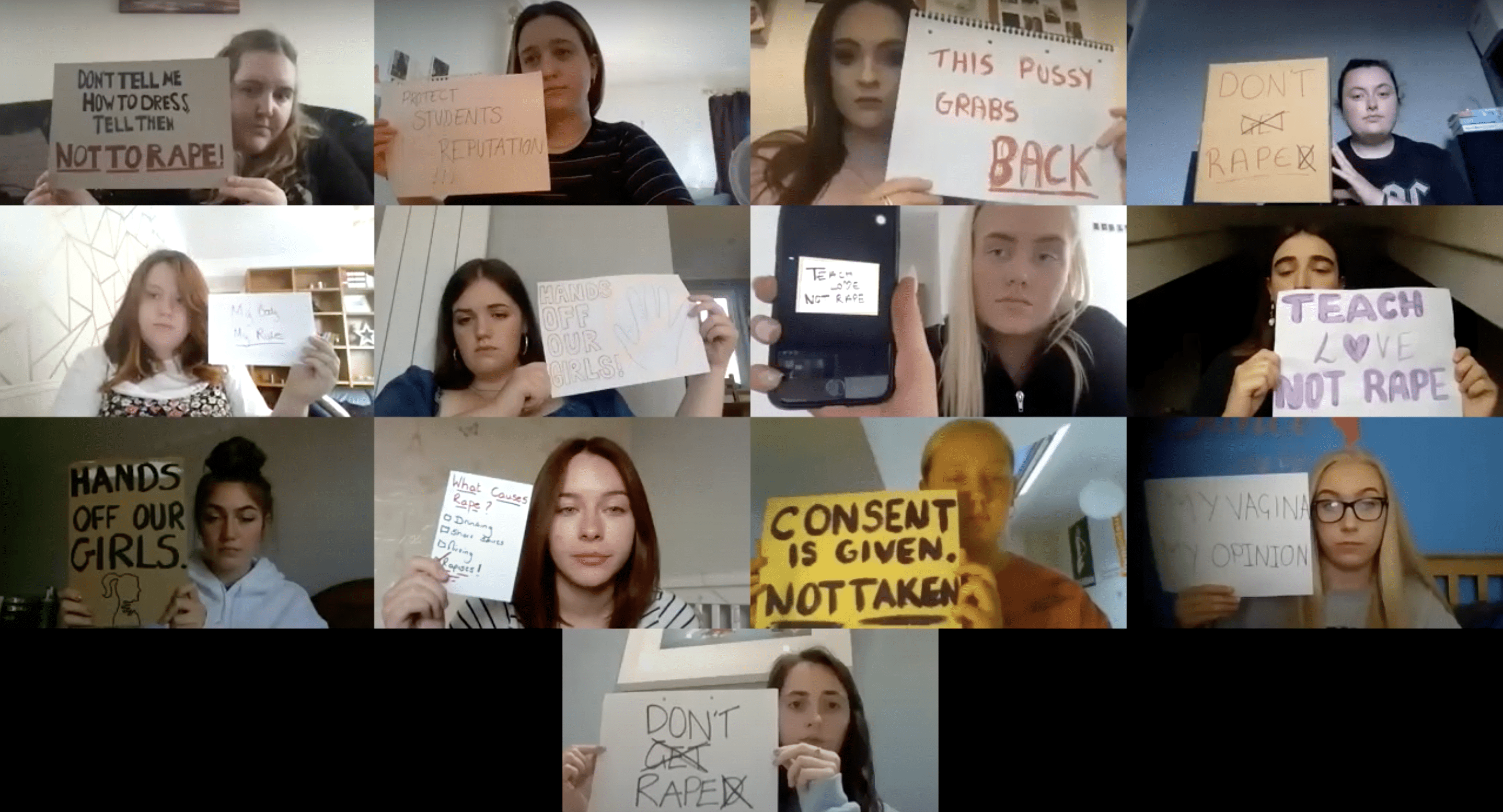After a strange year of makeshift livestreamed gigs and endless viral challenges to do at home, people from all walks of the creative industries have had to find new and inventive ways to keep their passions and further, livelihoods, afloat. Arguably, the arts industry hit hardest by the coronavirus pandemic has been that of the theatre, having to close doors indefinitely with no clear format within ‘the new normal’ to function on a live stage. However, just as other industries have found new ways to broadcast their mediums, so too has the theatre, and Dec Kelly’s new play The Group Chat is a testament to this, finding both successes and some drawbacks in its online format.
The Group Chat focuses on the true case of a group of female university students, who uncover a group chat amongst their male peers, full of abhorrent messages making threats of sexual assault and other such behaviour towards the girls. As the viewer, we are taken through various group calls between the girls as they process the situation and subsequent trauma. Of course, while working with such a sensitive subject matter, the playwright has a duty to handle the themes with delicacy, which Kelly succeeds at in an informative and understanding manner. The dialogue between the girls provides scope on the events sympathetically, feeling real in a way that begs discomfort from the viewer and, within an online video call format, makes one feel as though they are a fly on the wall, or even, an active member within the chat. “With the audience being members of the chat, it raises the interesting question of: ‘Would you say something if you were involved?’”, Kelly says in discussion of the play’s adaptation into an online format. This realism is assisted further by the personal and unfiltered performances by the three leading girls, Shauna McSwiney, Catherine Smart and Maddie Bell, who we spend almost the whole play within the company of.
However, while the online format of the play brought through strengths in its realistic tone and world-building, it also created a few drawbacks due to technical limitations. As noted, although the video calls provided an uncomfortably true world to throw the audience into, it also kept the actors at a physical and emotional distance. This meant that at times, there was a lack of rapport between the characters that would have helped to build them up as a group to relate to, as well individually. Of course, achieving this without the help of proper in-person rehearsals and a live stage would be a strenuous task for anyone to overcome. Similarly, often the transitions between scenes felt a little clunky and awkward, as each scene other than a few took place in the same group call format. Kelly does note that “the hardest part was making sure that the transitions all ran smoothly”, and of course, given the extra task of editing on top of directing and writing, it is still a great effort and is never a major distraction. Overall, The Group Chat successfully depicts a story that highlights an incredibly important topic on rape culture in today’s student climate, and provides a realistic and delicate take on the emotional impact on the victims of such an event. Hopefully, one day, we will be able to see the originally intended stage version of the play, free from the technical drawbacks in the unbeaten form of live theatre.

